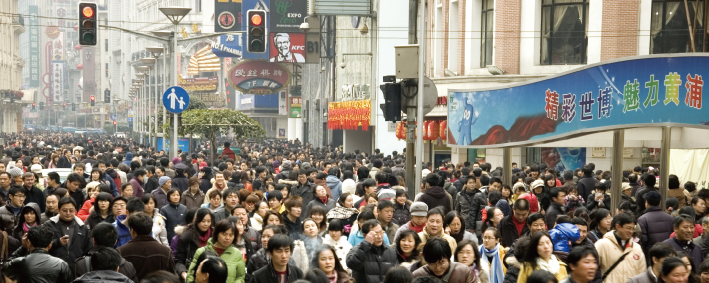 |
CCCH9023 China: Culture, State and Society
|
Course Description
This course offers a comprehensive exploration of the intricate factors that shape family dynamics and development in the context of China’s rapid growth and evolving societal norms.
Throughout the course, you will engage in captivating lectures and tutorials that are filled with interactive activities and groundbreaking literature on Chinese families. You will gain a deeper understanding of the unique dynamics of family life and development in China and how it shapes the nation’s social, economic, and cultural landscape.
The course will focus on the connections between family, migration, urbanization, and modernization. You will also delve into topics such as dating, marriage, and family planning.
Together, we will traverse the path from an individual to a harmonious family unit, embracing the diverse challenges and triumphs that enrich our shared human experience. Along the way, you will be captivated by the fascinating social and economic ripples generated by these family dynamics, inspired by modern China’s exceptional fusion of tradition and innovation.
Join us on this mesmerizing journey through the family life cycle, and gain a deeper understanding of the factors influencing family relationships and development in the context of modern China. We will take you on a unique and unforgettable learning experience centered around the 3Rs: Relate, Reflect, and Revolve!

Course Learning Outcomes
On completing the course, students will be able to:
- Identify and explain key concepts and facts about family and its interconnectedness of migration, urbalization and modernization.
- Analyze the changes of family formation, childbearing behaviours, and respnsiblity of caring for older adults from a family life cycle approach.
- Examine the social and economic implications of family dynamics with reference to the situations of modern China.
Offer Semester and Day of Teaching
Second semester (Wed)
Study Load
| Activities | Number of hours |
| Lectures | 24 |
| Tutorials | 8 |
| Reading / Self-study | 40 |
| Assessment: Group project | 30 |
| Assessment: Presentation (incl preparation) | 20 |
| Assessment: Term paper | 30 |
| Total: | 152 |
Assessment: 100% coursework
| Assessment Tasks | Weighting |
| Tutorial participation | 15 |
| Group project | 45 |
| Term paper | 40 |
Required Reading
All required readings will be available on the course’s Moodle.
Key reading:
- Zang, X., & Zhao, L. X. (2017). Handbook on the family and marriage in China. Edward Elgar Pub. From https://doi-org.eproxy.lib.hku.hk/10.4337/9781785368196
Required reading list:
- Cai, Z., Chen, M., Ye, P., & Yip, P. S. F. (2022). Socio-economic determinants of suicide rates in transforming China: A spatial-temporal analysis from 1990 to 2015. The Lancet regional health. Western Pacific, 19100341–100341. From https://doi.org/10.1016/j.lanwpc.2021.100341
- Chow, A. Y. M. (2017). Death in the family – bereavement and mourning in contemporary China. In X. Zang & L. X. Zhao, Handbook on the Family and Marriage in China (pp. 373–391). Edward Elgar Publishing. From https://doi.org/10.4337/9781785368196.00028
- Deng, S. Y., Zhao, I. Y., Ho, M., Saravanakumar, P., Molassiotis, A., & Montayre, J. (2022). Rural-urban disparities in healthy ageing: Evidence from a national study in China. Collegian (Royal College of Nursing, Australia), 29(6), 843–849. From https://doi.org/10.1016/j.colegn.2022.06.008
- Gietel-Basten, S. (2017). Family planning and fertility transition in China. In X. Zang & L. X. Zhao, Handbook on the Family and Marriage in China (pp. 187–203). Edward Elgar Publishing. From https://doi.org/10.4337/9781785368196.00017
- Hu, Y., & Scott, J. (2016). Family and Gender Values in China: Generational, Geographic, and Gender Differences. Journal of family issues, 37(9), 1267–1293. From https://doi.org/10.1177/0192513X14528710
- Liu, H., & Mu, Z. (2022). Mate selection in China: Trends and determinants. Family relations. From https://doi.org/10.1111/fare.12718 [Online]
- Qian, Y., & Jin, Y. (2020). Premarital Pregnancy in China: Cohort Trends and Educational Gradients. Studies in family planning, 51(3), 273–291. From https://doi.org/10.1111/sifp.12135
- Qian, Z., Cheng, Y., & Qian, Y. (2020). Hukou, marriage, and access to wealth in Shanghai. Journal of ethnic and migration studies, 46(18), 3920–3936. From https://doi.org/10.1080/1369183X.2019.1592883
- Song, Y., & Zhang, Y. B. (2012). Husbands’ Conflict Styles in Chinese Mother/Daughter-In-Law Conflicts: Daughters-in-Law’s Perspectives. Journal of family communication, 12(1), 57–74. From https://doi.org/10.1080/15267431.2011.629968
- Tang, S., Yang, T., Ye, C., Liu, M., Gong, Y., Yao, L., Xu, Y., & Bai, Y. (2022). Research on grandchild care and depression of Chinese older adults based on CHARLS2018: the mediating role of intergenerational support from children. BMC public health, 22(1), 137–137. From https://doi.org/10.1186/s12889-022-12553-x
- Zeng, Y., & Hesketh, T. (2016). The effects of China’s universal two-child policy. The Lancet (British edition), 388(10054), 1930–1938. From https://doi.org/10.1016/S0140-6736(16)31405-2
- Zhang, L., Zeng, Y., Wang, L., & Fang, Y. (2020). Urban-Rural Differences in Long-Term Care Service Status and Needs Among Home-Based Elderly People in China. International journal of environmental research and public health, 17(5), 1701. From https://doi.org/10.3390/ijerph17051701
- Zheng, J. (2020). Women’s ‘Gender Capital’ Experiences in Conjugal Housing Consumption: Understanding a New Pattern of Gender Inequality in China. Chinese sociological review, 52(2), 144–166 From https://doi.org/10.1080/21620555.2019.1680279
Course Co-ordinator and Teacher(s)
| Course Co-ordinator | Contact |
| Professor P. Lu Department of Social Work and Social Administration, Faculty of Social Sciences |
Tel: 3917 2080 Email: peiyilu@hku.hk |
| Teacher(s) | Contact |
| Professor P. Lu Department of Social Work and Social Administration, Faculty of Social Sciences |
Tel: 3917 2080 Email: peiyilu@hku.hk |

